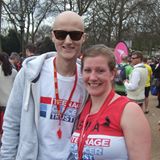New, improved self-management scheme
For those who have survived breast or colorectal cancers
The NHS in North East Essex, in partnership with Macmillan cancer charity, is launching a pioneering new service on the 1st April to better support survivors of cancer. It has been designed with the active involvement of patients from the cancer service user-groups.
This new scheme is designed to take some of the national ideas and build a new local service to better support people to manage their own medical and wider recovery process.
The scheme is specifically for those who have survived breast or colorectal cancers and who are now judged as at lower-risk of relapse, with the intention to learn from this to potentially expand the service to survivors of certain other cancers. Higher-risk patients, such as those who have suffered from aggressive forms of the disease, will continue to need and get a different, more medically intensive follow-up programme.
Dr Linda Mahon-Daly, a GP at Shrub End in Colchester, leading the collaboration with Macmillan, said:
We will be providing an improved service for patients ensuring that every patient has real, continuing practical and moral support. National research and planning is all pointing towards similar services, but we are making it work practically for these patients, who often face very challenging circumstances. There is also the benefit of freeing up hospital doctors’ time, allowing them to deliver more services.
Many people, once their treatment is successfully concluded for these cancers, can find themselves without effective follow-up support. There are about 200 new lower-risk patients each year in NE Essex for each of these cancers. Under the new scheme, they and their families will be invited to attend a workshop specific to their type of cancer, which will help them understand and prepare for problems they may face, for instance certain physical side-effects that may follow. Patients will then be discharged from routine outpatient appointments; they will be assigned a Macmillan “buddy”, a trained volunteer with experience and interest in this type of cancer.
There will be a clear, rapid procedure to get the patient back under consultant care if needed and patients will still be able to contact their clinical nurse specialist (CNS) for advice on medical problems.
Michelle Bath, Macmillan Development Manager for Essex, said:
Following active treatment many patients tell us they feel alone and try to ‘get back to normal’ but their cancer experience has had such a big impact that they’re no longer sure what their ‘normal’ is. By training volunteer buddies we are aiming to give patients a support network and somebody to speak to about their concerns. This will give patients a listening ear that isn’t a member of their medical team but they will know how to access medical support if they suspect a change or recurrence of their cancer.
Clinically proven effective follow-up medical investigations, such as regular colonoscopy and mammography will still be carried out, as at present, to ensure that any problems are found and dealt with quickly.
Donna Booton, Matron for Cancer Services at Colchester Hospital University NHS Foundation Trust, said:
This is an exceptional scheme for the patients of North East Essex. It will reduce their fears and give them the support and knowledge they have not received before in order to be able to move on with their lives. This is also an example of excellent collaborative involving Colchester Hospital Trust, North East Essex Clinical Commissioning and Macmillan Cancer Support.
The volunteer buddies are initially funded and trained by Macmillan offering patients their wide experience, good information and non-medical advice. Perhaps crucially they will offer support for the patient, if needed, with re-building life routines, such as finding a job and other services. Patients will know they have continuing support and quick, easy access to further help as needed. Each patient will get the support they need as an individual, rather than the current system of routine out-patient appointments at hospital for everyone.
Dr Shane Gordon, Clinical Chief Officer at NE Essex CCG (Clinical Commissioning Group) said:
This is a brilliant scheme; it will directly support many cancer survivors to rebuild their lives successfully. It is an excellent collaboration between Macmillan and the NHS which meets the support needs of patients at any time and links effectively with professional clinical services.
A lot of work has been done in the NHS nationally to understand why so many people who have been successfully treated for cancer, don’t feel they get effective follow-up support. There is good evidence too that the current routine follow-up appointments are not the most effective way of picking up any symptoms of recurrence of the disease, but patients do need help with any side-effects of treatment and sometimes with re-building their lives after treatment.
There will be an ongoing series of general cancer workshops, run and funded by Macmillan, on topics such as finance, diet and exercise and sexual health, which will be available to all cancer patients. Pilot workshops will be held and then evaluated, with the patient groups defining the feedback questionnaire which will be used.
 Open Gardens 2018
Open Gardens 2018












